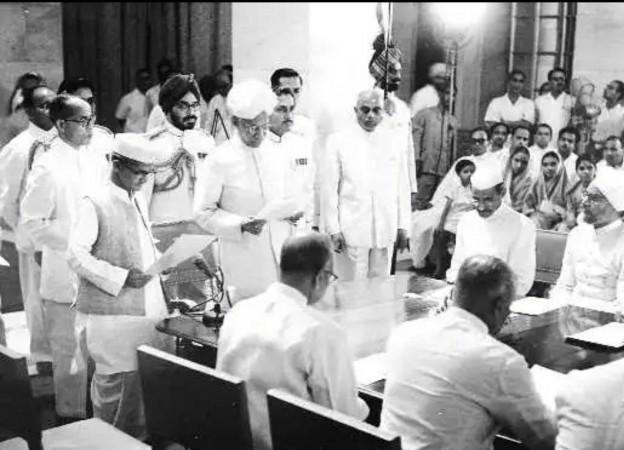Lal Bahadur Shastri, who was born on Sharada Prasad Srivastava and Ramdulari Devi in Mughalsarai in Uttar Pradesh on 2 October 1904, was the second Prime Minister of India.

He was known for promoting the White Revolution and the Green Revolution, which helped the country increase its food grain production. He played an important role in establishing peace between India and Pakistan. It was his leadership skills that led to the country winning over Pakistan during the Indo-Pak war of 1965 and his slogan 'Jai Jawan and Jai Kisan' which turned out to be popular during the war times.
Shastri, who led an honest and simple life, was a strong believer in 'want not, waste not' and put ideals above everything else. He was also the man behind the appointment of women conductors in all public transport facilities.
On the birth anniversary of Lal Bahadur Shastri, who shares his birthday with Mahatma Gandhi, let's look at some of the inspiring quotes spoken by the former prime minister.
I am not as simple as I look.
If Pakistan has any ideas of annexing any part of our territories by force, she should think afresh. I want to state categorically that force will be met with force and aggression against us will never be allowed to succeed.
India will have to hang down her head in shame if even one person is left who is said in any way to be untouchable.
The preservation of freedom is not the task of soldiers alone. The whole nation has to stand strong.
We believe in peace and peaceful development, not only for ourselves but for people all over the world.
The basic idea of governance, as I see it, is to hold the society together so that it can develop and march towards certain goals.
That loyalty to the country comes ahead of all other loyalties. And this is an absolute loyalty, since one cannot weight it in terms of what one receives.
Those who govern must see how the people react to administration. Ultimately, the people are the final arbiters.
We have now to fight for peace with the same courage and determination as we fought against aggression.
The economic issues are most vital for us and it is of the highest importance that we should fight our biggest enemies - poverty, unemployment.






![Ultrahuman launches Ring PRO, free charging case with more than just power and Jade AI [details]](https://data1.ibtimes.co.in/en/full/829151/ultrahuman-launches-ring-pro-free-charging-case-more-just-power-jade-ai-details.png?w=220&h=138)










